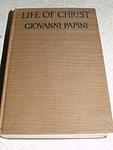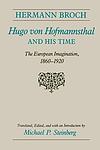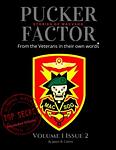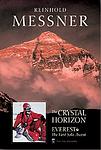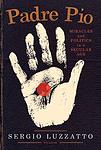The Greatest Italian, Austrian "Biography" Books of All Time
Click to learn how this list is calculated.
This list represents a comprehensive and trusted collection of the greatest books. Developed through a specialized algorithm, it brings together 300 'best of' book lists to form a definitive guide to the world's most acclaimed books. For those interested in how these books are chosen, additional details can be found on the rankings page.
Genres
Biography is a genre of literature that focuses on the life story of a person, typically a historical figure or a celebrity. It provides a detailed account of the subject's life, including their upbringing, achievements, struggles, and personal relationships. Biographies can be written in various formats, including memoirs, autobiographies, and third-person narratives. This category of books offers readers an opportunity to gain insight into the lives of notable individuals and their impact on society.
Countries
Date Range
Reading Statistics
Click the button below to see how many of these books you've read!
Download
If you're interested in downloading this list as a CSV file for use in a spreadsheet application, you can easily do so by clicking the button below. Please note that to ensure a manageable file size and faster download, the CSV will include details for only the first 500 books.
Download-
1. History of My Life by Giacomo Casanova
"History of My Life" is an autobiography of an Italian adventurer and author, who is best remembered for his often complicated and elaborate affairs with women. The book offers a fascinating insight into his life, travels, and encounters. It provides an intimate look at the social customs and life of the 18th century, as well as the author's personal philosophies on a variety of subjects, including love, luck, and the importance of maintaining a sense of humor.
-
2. The Periodic Table by Primo Levi
"The Periodic Table" is a collection of short stories that use elements of the periodic table as metaphors to explore the author's experiences as a Jewish-Italian chemist before, during, and after World War II. Each chapter is named after a chemical element, reflecting its significant role in the story. The work provides deep insights into the human condition and the power of science, while also serving as a poignant memoir of survival during the Holocaust.
-
3. Lives of the Artists by Giorgio Vasari
"Lives of the Artists" is a comprehensive collection of biographies of the most significant Italian artists from the 13th to the 16th centuries. The book provides a detailed overview of the artists' lives, their works, and their contributions to the art world. It includes the biographies of renowned artists like Leonardo da Vinci, Michelangelo, and Raphael, among others. The author's personal acquaintance with some of these artists lends a unique perspective, making the book a valuable historical document.
-
4. The World Of Yesterday by Stefan Zweig
The book is a poignant memoir reflecting on the transformative events and cultural atmosphere of Europe before World War I, through the interwar years and into the rise of the Nazis. It captures the author's experiences of growing up in a vibrant pre-war Vienna, the intellectual richness and artistic achievements of the time, as well as the profound sense of loss as the world he knew disintegrated into chaos and totalitarianism. With a mix of nostalgia and despair, the narrative serves as a lament for the lost world of European culture and as a warning about the fragility of peace and the human cost of war.
-
5. Travels by Marco Polo
This book is a detailed account of a Venetian merchant's extensive travels throughout Asia during the 13th century. The narrative provides a comprehensive exploration of the diverse cultures, customs, landscapes, wildlife, and wealth of the Eastern world, including the Mongol Empire and China, where the author spent time in the court of Kublai Khan. His descriptions of the grandeur and sophistication of these civilizations challenged European assumptions about the East, and his tales of exotic wonders and adventures continue to captivate readers today.
-
6. Life of Christ by Giovanni Papini
"Life of Christ" is a comprehensive biography of Jesus Christ, exploring his life, teachings, and impact on humanity. The book delves into the historical, cultural, and spiritual context of his era, providing in-depth analysis of his miracles, parables, and relationships with his disciples and followers. The author also examines the significance of Christ's crucifixion and resurrection, aiming to provide a thorough understanding of his life and mission.
-
7. Balzac by Stefan Zweig
This book offers a comprehensive biography of the famed French novelist and playwright, Honore de Balzac. The author delves deep into Balzac's life, exploring both his personal and professional experiences. The narrative sheds light on Balzac's tumultuous relationships, his relentless work ethic, and his extraordinary ability to depict the society and people of his time through his literature. Balzac's passion, determination, and genius are vividly presented, giving readers an intimate understanding of the man behind some of the most influential works in French literature.
-
8. Autobiography by Benvenuto Cellini
The book is a vivid personal account of a 16th-century Italian artist and goldsmith, providing a detailed portrayal of Renaissance life. The author narrates his tumultuous career, which spanned artistic triumphs, patronage under powerful figures, and frequent legal and violent skirmishes. His narrative is filled with tales of his work on important commissions, his encounters with notable contemporaries, and his passionate dedication to art. The autobiography stands out for its lively storytelling, the author's brash personality, and insights into the social and cultural dynamics of the time, making it a valuable historical document as well as an engaging personal story.
-
9. Wittgenstein's Nephew by Thomas Bernhard
"Wittgenstein's Nephew" is a semi-autobiographical novel that explores the friendship between the narrator and his friend Paul, who is the nephew of the famous philosopher Ludwig Wittgenstein. The story takes place in Vienna and is set against the backdrop of the Austrian mental health system. The novel delves into themes of sanity, insanity, and the fine line that separates the two, while also offering a critique of Austrian society. It is a meditation on the nature of illness, both physical and mental, and the impact it has on personal relationships and one's perception of the world.
-
10. A Sorrow Beyond Dreams by Peter Handke
This book is a poignant exploration of the author's mother's life and her struggle with depression, ultimately leading to her suicide. It provides a deeply personal and raw account of the author's attempts to understand his mother's despair and the societal constraints that contributed to it. The narrative is a profound reflection on memory, loss, and the complexity of human emotions, offering a stark and moving portrayal of a woman's life in a rigid, post-war society.
-
11. Tongue Set Free by Elias Canetti
"Tongue Set Free" is a captivating memoir that explores the author's personal journey of self-discovery and identity formation. Through vivid and introspective storytelling, the book delves into the complexities of Canetti's multicultural upbringing, his struggles with language and communication, and his quest for freedom and belonging. With poetic prose and profound insights, the author reflects on the power of words, the influence of cultural heritage, and the transformative nature of embracing one's true self.
-
12. The Snows Of Yesteryear by Gregor von Rezzori
"The Snows of Yesteryear" is a memoir that explores the author's complex and tumultuous upbringing in Eastern Europe during the early 20th century. Through a series of vivid and poignant anecdotes, the book delves into the author's personal experiences with war, displacement, and the collapse of the Austro-Hungarian Empire, offering a deeply introspective and nostalgic reflection on the fleeting nature of time and the enduring impact of one's past.
-
13. Hugo Von Hofmannsthal And His Time by Hermann Broch
The book provides a comprehensive examination of the life and work of a prominent Austrian writer and his influence during a period of significant cultural and intellectual change in early 20th-century Europe. It delves into the writer's relationships with contemporaries, his contributions to literature and drama, and his role in the broader context of the modernist movement. The author critically assesses the writer's legacy, exploring the complexities of his artistic endeavors and the societal shifts that shaped his era, offering readers a detailed portrait of a man whose work encapsulated the spirit of his time.
-
14. Stories And Recollections by Umberto Saba
"Stories and Recollections" is a collection of autobiographical prose by an Italian writer, offering a window into the author's life and times. The book weaves together a series of personal anecdotes, reflections, and narratives that span the author's childhood, adolescence, and adulthood. Through these stories, the reader gains insight into the writer's Jewish heritage, his experiences in Trieste, and the broader cultural and historical context of early 20th-century Europe. The work is characterized by its intimate tone and the author's candid exploration of identity, family, and the complexities of human relationships.
-
15. Memoirs Of Lorenzo Da Ponte by Lorenzo Da Ponte
"Memoirs of Lorenzo Da Ponte" is an autobiographical account of the life of Lorenzo Da Ponte, an Italian poet and librettist best known for his collaboration with Mozart. The memoirs trace his colorful and tumultuous life from his early years in Venice, where he was ordained as a priest, through his banishment from Venice due to his scandalous activities, to his significant contributions to the world of opera in Vienna. The narrative also covers his later years in the United States, where he worked in various capacities, including as a grocer and a professor of Italian literature. Da Ponte's memoirs provide a vivid portrayal of the cultural and social dynamics of Europe and America in the late 18th and early 19th centuries, as well as intimate insights into his personal trials and the artistic milieu of his time.
-
16. The Crystal Horizon by Reinhold Messner
"The Crystal Horizon" is a gripping account of the author's solo climb of Mount Everest without the aid of supplemental oxygen, a feat never accomplished before. The book not only details the physical and mental challenges faced during the climb but also delves into the philosophical and spiritual journey the author undergoes. The narrative is interspersed with reflections on the history and culture of the Himalayas, the nature of mountaineering, and the author's personal beliefs and motivations.
-
17. The Mountains of My Life by Walter Bonatti
"The Mountains of My Life" is a collection of memoirs by a renowned mountaineer, recounting his numerous adventures and expeditions to some of the world's highest and most challenging peaks. The book includes detailed accounts of his climbs, including the first winter solo ascent of the Matterhorn's north face and the first solo winter ascent of the Grandes Jorasses' north face. The narrative also delves into controversial events, such as the author's disputed role in the first ascent of K2. The book is a thrilling blend of mountaineering history, personal reflection, and breathtaking descriptions of nature's grandeur.
-
18. Padre Pio by Sergio Luzzatto
The book explores the life and influence of Padre Pio, a Capuchin friar known for his piety, stigmata, and miraculous abilities, which drew both devotion and skepticism. Through rigorous historical research, the author delves into the controversies and fervor surrounding Pio, examining his role within the Catholic Church and his impact on the faithful. The biography critically assesses both the saintly and human aspects of Pio's life, presenting a complex portrait of a figure revered by many and questioned by some, set against the backdrop of 20th-century Italian religious and social history.
Reading Statistics
Click the button below to see how many of these books you've read!
Download
If you're interested in downloading this list as a CSV file for use in a spreadsheet application, you can easily do so by clicking the button below. Please note that to ensure a manageable file size and faster download, the CSV will include details for only the first 500 books.
Download




